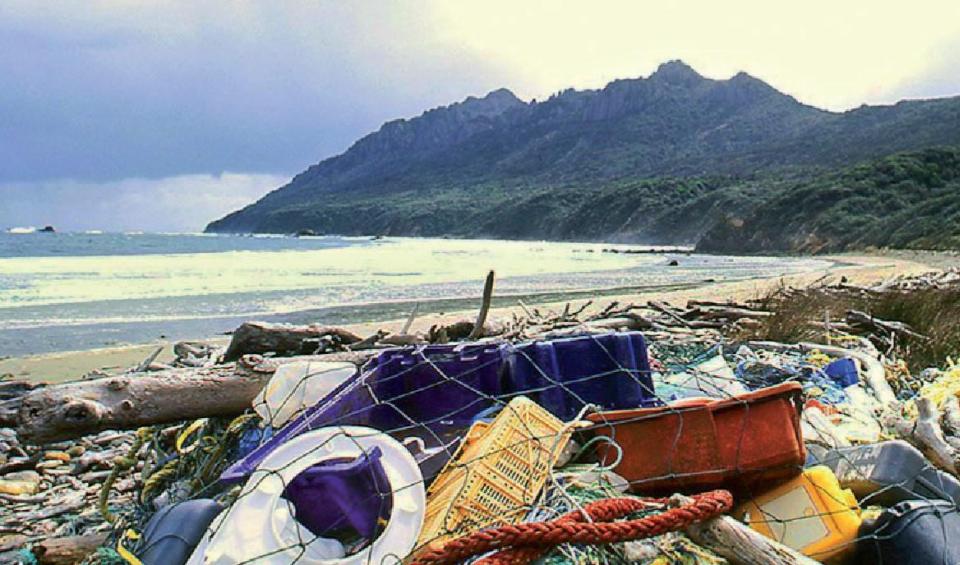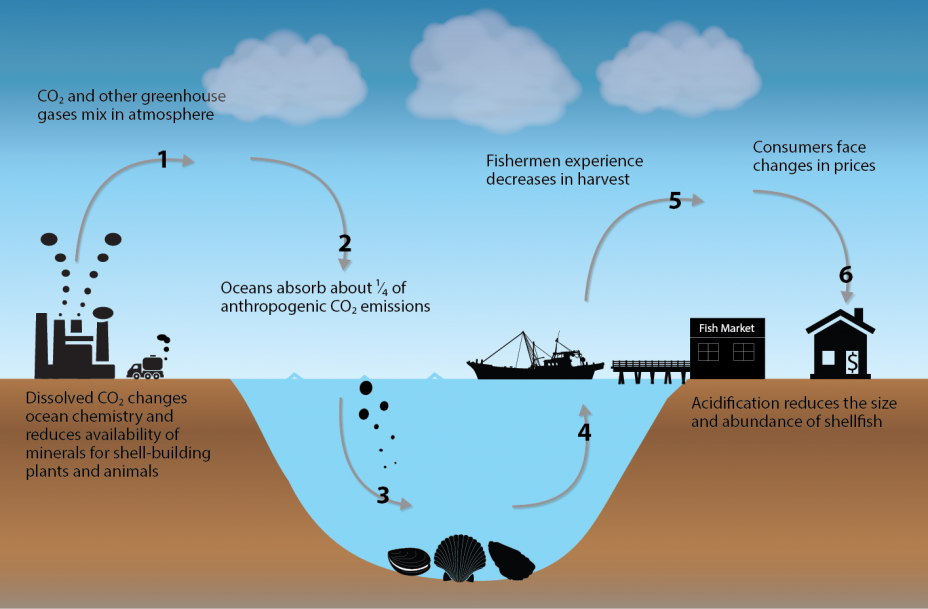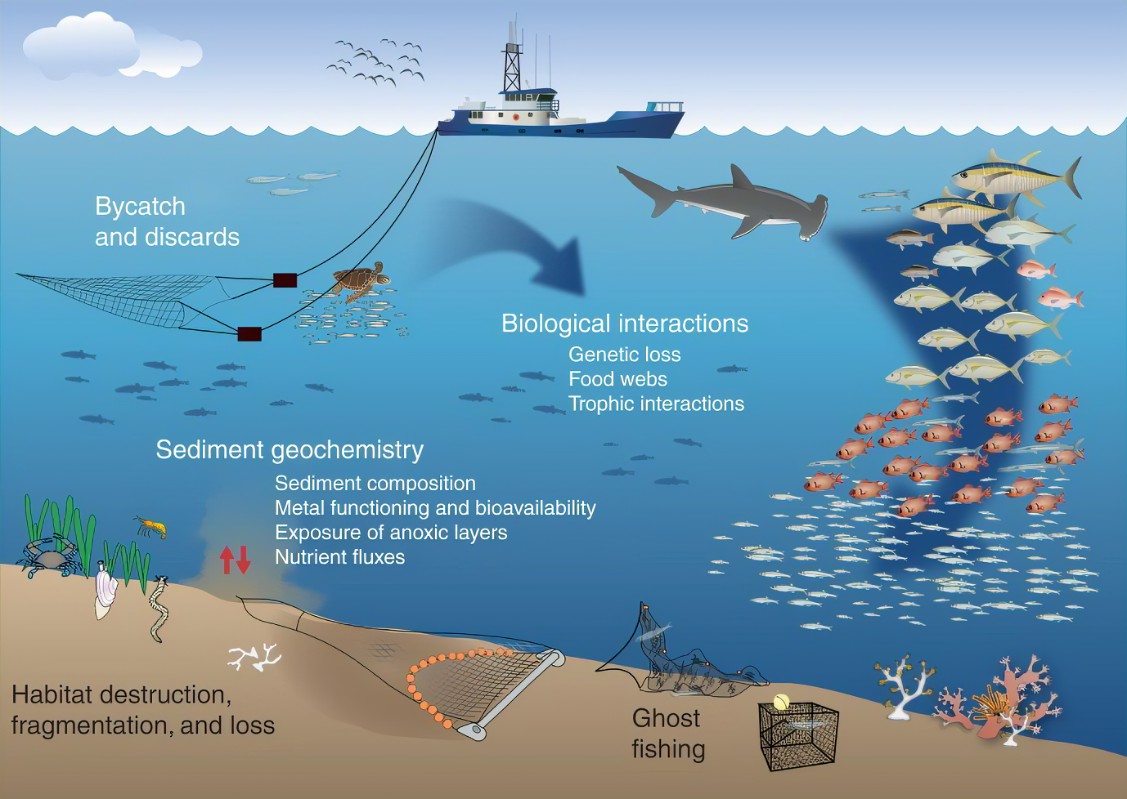
Effects on Marine Ecosystems: An In-depth Analysis of the Impact and Importance
Introduction
Marine ecosystems are incredibly diverse and play a vital role in the overall health of our planet. However, they are facing numerous threats due to human activities. This article aims to provide a comprehensive exploration of the effects on marine ecosystems, highlighting their relevance and importance.
Historical Background
Throughout history, human activities have had a significant impact on marine ecosystems. From overfishing to pollution, these activities have caused lasting damage to marine life and habitats. Over time, scientific understanding of these effects has evolved, leading to a greater awareness of the need for conservation and restoration efforts.
Key Concepts and Definitions
To understand the effects on marine ecosystems, it is crucial to grasp the key concepts and definitions associated with them. Marine ecosystems encompass a wide range of habitats and organisms, including coral reefs, mangroves, and coastal areas. Biodiversity within these ecosystems is of utmost importance, as it ensures the overall health and resilience of the marine environment. Additionally, understanding the ecological processes at play, such as nutrient cycling and energy flow, provides insights into the impacts of anthropogenic activities on these delicate systems.

Main Discussion Points
Pollution and its effects on marine ecosystems
Pollution poses a significant threat to marine ecosystems. Various types of pollutants, including plastic, oil spills, and chemical contaminants, enter the oceans through human activities. These pollutants can have detrimental effects on marine organisms and habitats. For instance, plastic waste entangles marine animals and affects their feeding and reproductive behaviors. Oil spills can lead to the death of marine life and the destruction of habitats. Chemical contaminants, such as heavy metals, can accumulate in organisms, causing long-term health issues. Moreover, pollution disrupts food chains and trophic levels, leading to imbalances within the ecosystem.
Climate change and its effects on marine ecosystems
Climate change is causing unprecedented changes in marine ecosystems. Rising sea temperatures and ocean acidification have severe consequences for marine life. Coral bleaching, a phenomenon resulting from increased sea temperatures, leads to the loss of vibrant coral reefs, which are vital habitats for countless marine species. Furthermore, climate change disrupts the migration patterns of marine species, affecting their feeding and breeding behaviors and potentially leading to population decline.
Overfishing and its effects on marine ecosystems
Overfishing poses a significant threat to the balance of marine ecosystems. The decline of fish populations due to excessive fishing has far-reaching consequences, including impacts on global food security. Overfishing can also disrupt ecological balances and trigger trophic cascades, where the loss of one species influences the entire food web. Additionally, destructive fishing practices, such as bottom trawling, can cause habitat destruction, further exacerbating the negative effects on marine ecosystems.
Case Studies or Examples
The decline of the Great Barrier Reef
The Great Barrier Reef, one of the world’s most iconic marine ecosystems, is facing multiple stressors that have led to its decline. Rising sea temperatures, ocean acidification, and pollution have all contributed to the bleaching and degradation of the reef. Urgent conservation efforts are essential to preserve this unique ecosystem and the countless species that call it home.

The impact of the Deepwater Horizon oil spill
The Deepwater Horizon oil spill in the Gulf of Mexico had devastating effects on the marine ecosystem. The spill resulted in the death of marine organisms and the contamination of habitats. The long-term impacts of the spill continue to be studied, highlighting the need for stricter regulations and improved safety measures to prevent such disasters in the future.
The collapse of cod populations in the North Atlantic
The North Atlantic cod populations have experienced a significant decline due to overfishing. This collapse has had severe ecological and economic consequences for the region. It serves as a stark reminder of the importance of sustainable fishing practices and the need to implement effective management strategies to prevent the depletion of vital fish stocks.
Current Trends or Developments
Increasing awareness and efforts towards marine conservation
There is a growing global awareness of the importance of marine conservation. Efforts to protect and restore marine ecosystems are multiplying, with individuals, organizations, and governments actively engaging in conservation initiatives. The rise of marine protected areas and the implementation of sustainable fishing practices reflect the increasing commitment to safeguarding the health and biodiversity of our oceans.
Advances in technology for studying and monitoring marine ecosystems
Technological advancements have significantly enhanced our ability to study and monitor marine ecosystems. These tools provide valuable data for understanding the effects on marine ecosystems. This information enables scientists and policymakers to make evidence-based decisions and implement effective conservation measures.
International policies and efforts to mitigate the effects on marine ecosystems
Recognizing the global nature of the issue, international cooperation and policies have been established to mitigate the effects on marine ecosystems. Agreements such as the United Nations Sustainable Development Goals and the Paris Agreement on climate change emphasize the importance of protecting and restoring marine ecosystems. Continued collaboration among nations is crucial to achieving sustainable outcomes.
Challenges or Controversies
Conflicting interests between conservation and economic activities
One of the most significant challenges in addressing the effects on marine ecosystems is the conflicting interests between conservation efforts and economic activities. Industries such as fishing, tourism, and offshore oil and gas extraction often clash with conservation goals. Striking a balance between these interests is crucial to ensure the long-term health of marine ecosystems while supporting sustainable economic development.
Disagreements on the effectiveness of conservation measures
There are ongoing debates and disagreements regarding the effectiveness of various conservation measures. Some argue that marine protected areas alone are insufficient, calling for stricter regulations and enforcement. Others believe that a combination of measures, including sustainable fishing practices and habitat restoration, is necessary. Finding common ground and evidence-based solutions is essential to address these controversies effectively.

Balancing the needs of local communities and the protection of marine ecosystems
Conservation efforts must also consider the needs and livelihoods of local communities that depend on marine resources. Striking a balance between meeting these needs and safeguarding the health of marine ecosystems is a complex challenge. Engaging local communities in decision-making processes and promoting sustainable alternative livelihoods can help bridge this gap.
Future Outlook
Potential consequences if no action is taken to address the effects on marine ecosystems
Failure to address the effects on marine ecosystems can have severe consequences. The continued decline of marine biodiversity, habitat destruction, and the collapse of key species can lead to ecological imbalance and the loss of valuable ecosystem services. This, in turn, can impact human well-being, food security, and coastal economies.
Opportunities for sustainable practices and restoration efforts
Despite the challenges, there are significant opportunities for implementing sustainable practices and restoration efforts. Investing in sustainable fisheries, reducing pollution, and restoring degraded habitats can help reverse the negative effects on marine ecosystems. Embracing innovative solutions and promoting sustainable industries can pave the way for a healthier future for our oceans.
Importance of international cooperation for effective conservation
International cooperation is vital for effective conservation of marine ecosystems. Collaborative efforts to combat climate change, regulate fishing practices, and reduce pollution can have a far-reaching impact. By working together, nations can ensure the long-term health and resilience of marine ecosystems for future generations.
Conclusion
The effects on marine ecosystems are a pressing global concern. Pollution, climate change, and overfishing continue to threaten these delicate ecosystems and the countless species they support. However, by increasing awareness, implementing sustainable practices, and promoting international cooperation, we can protect and restore marine ecosystems. Safeguarding these invaluable habitats is not only crucial for marine life but also for the overall health and well-being of our planet.
References:
Scientific publications and studies on effects on marine ecosystems
Conservation organizations and websites for further reading and research.




